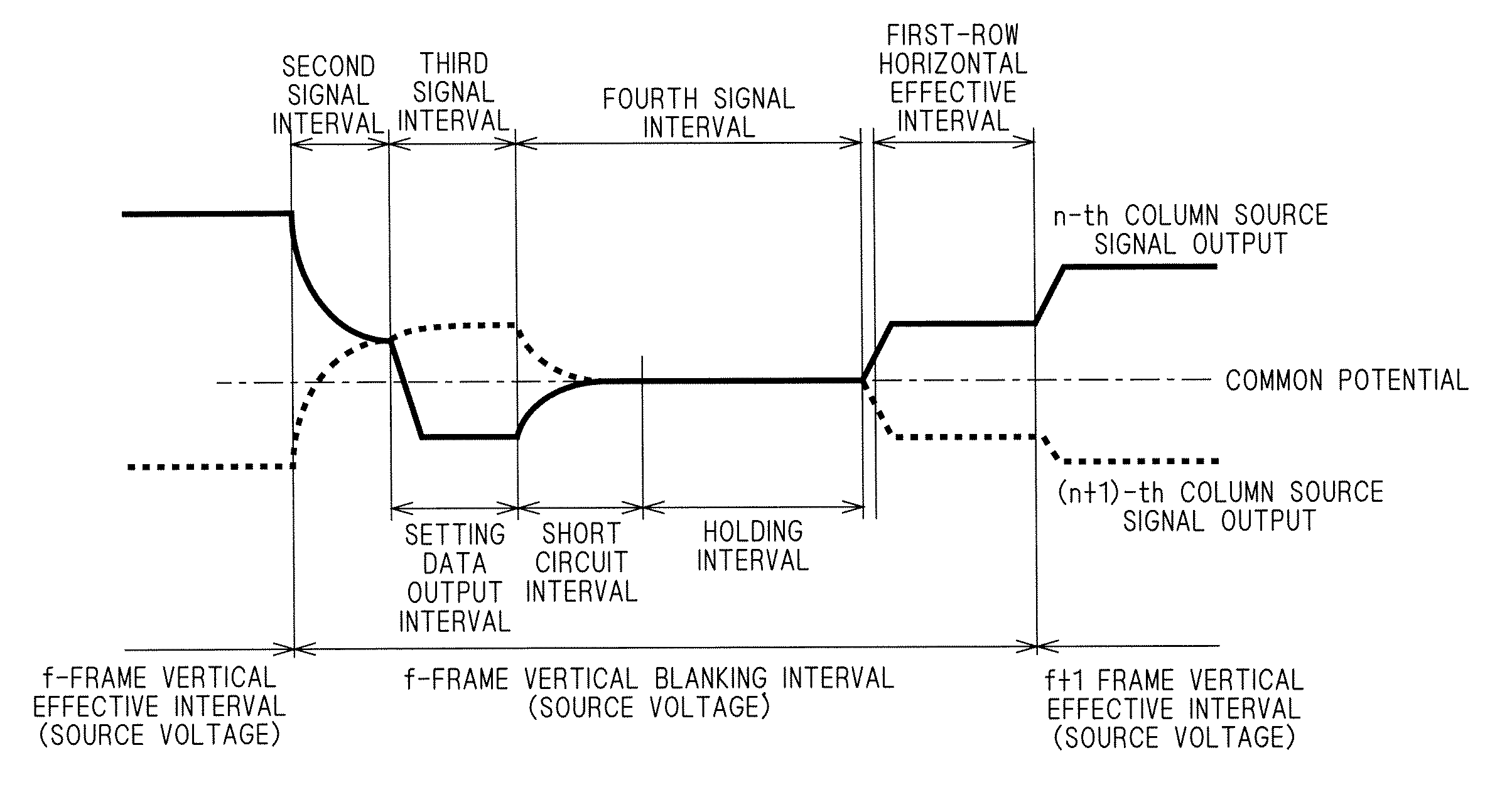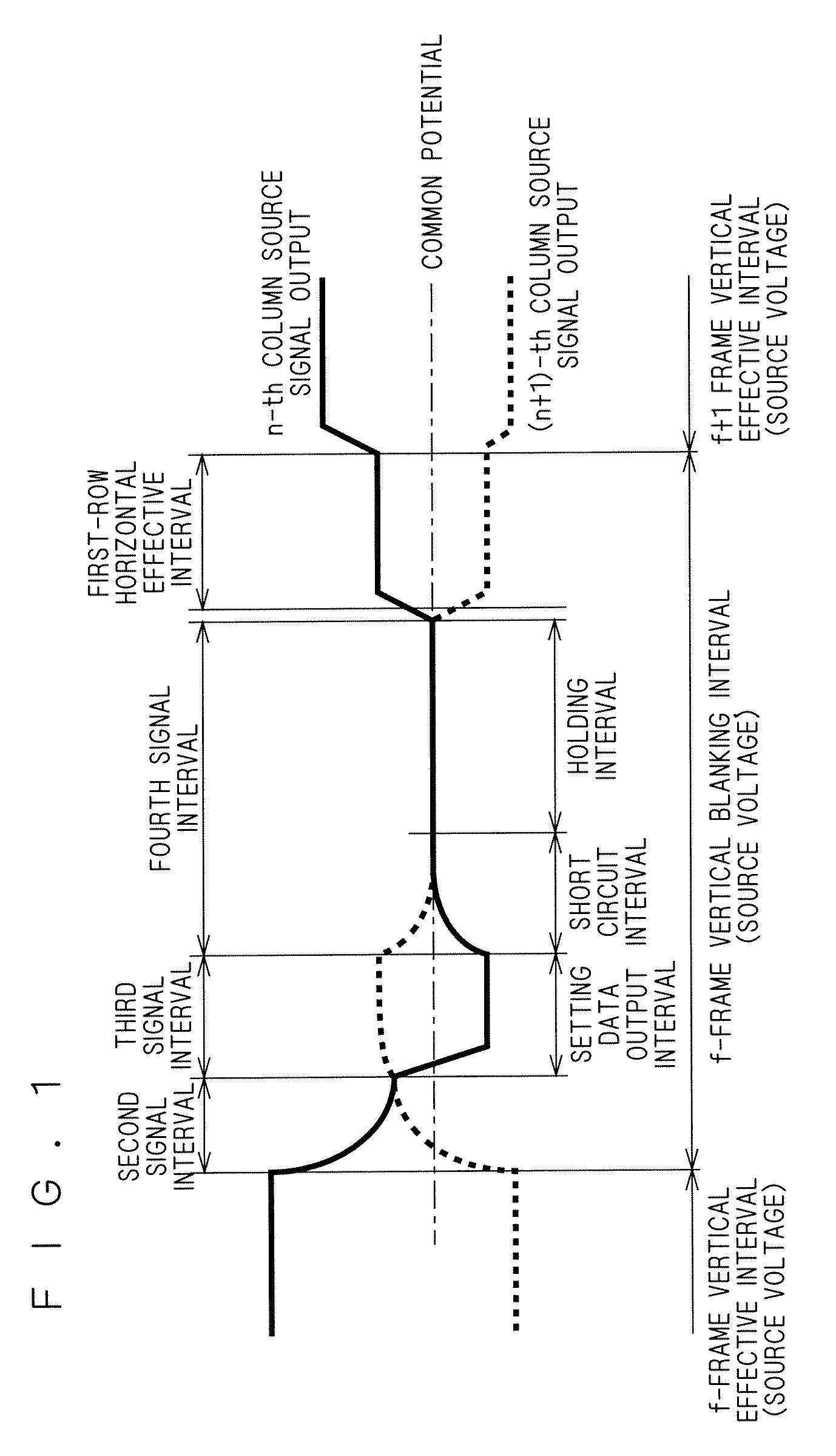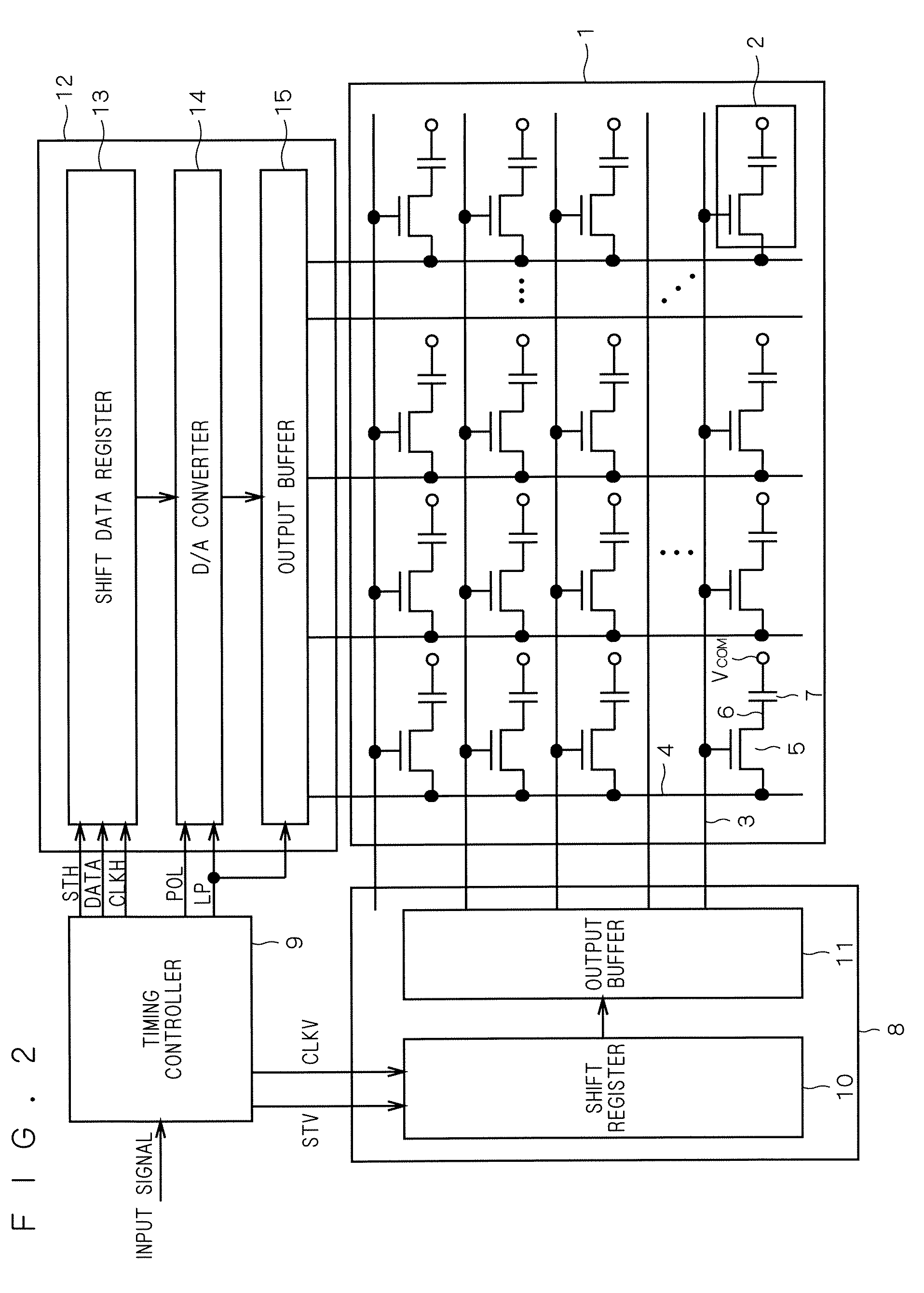Liquid crystal display device and associated method for improving holding characteristics of an active element during a vertical blanking interval
a vertical blanking interval and active element technology, applied in static indicating devices, non-linear optics, instruments, etc., can solve problems such as image persistence, liquid crystal deterioration, and increase power consumption, and achieve low power consumption, improve the holding characteristics of active elements, and improve the effect of circuit siz
- Summary
- Abstract
- Description
- Claims
- Application Information
AI Technical Summary
Benefits of technology
Problems solved by technology
Method used
Image
Examples
first preferred embodiment
[0033]FIG. 1 shows potential variations in source line of a liquid crystal display device according to a first preferred embodiment. FIG. 2 is a block diagram of the liquid crystal display device according to this embodiment. Referring to FIG. 2, the structure of the liquid crystal display device according to this embodiment is first described. The structure of a typical active matrix TFT liquid crystal display device may be used for the liquid crystal display device according to this embodiment.
[0034]The liquid crystal display device shown in FIG. 2 has pixels 2 arranged in a matrix on a translucent substrate 1, and gate lines 3 and source lines 4 interconnected to surround the pixels 2. Provided at the intersection of each gate line 3 and each source line 4 is a thin film transistor (TFT 5), an active element, whose drain electrode 6 is connected to a pixel element. An opposed substrate (not shown) is provided in an opposed position to the substrate 1 on which the pixels 2 are for...
second preferred embodiment
[0079]In a typical liquid crystal display device, gate lines are driven by a gate driver provided on one side of the gate lines. The waveform of a gate signal thus becomes steep in the vicinity of the input side of a gate line, and becomes gradual with increasing distance from the input side due to the resistance and parasitic capacitance of the gate line. In a liquid crystal display device in which gate lines are driven by gate drivers provided on both sides of the gate lines, the waveform of a gate signal becomes gradual in the vicinity of the center of a gate line when compared to the vicinity of the input side.
[0080]The gradual waveform of a gate signal causes the gate signal to vary in a horizontal direction (gate line direction) of the liquid crystal display device. The gate signal variations cause the feed-through voltage (ΔVCGD) of a source potential to vary in the horizontal direction of the liquid crystal display device. More specifically, when the waveform of a gate signa...
PUM
 Login to View More
Login to View More Abstract
Description
Claims
Application Information
 Login to View More
Login to View More - R&D
- Intellectual Property
- Life Sciences
- Materials
- Tech Scout
- Unparalleled Data Quality
- Higher Quality Content
- 60% Fewer Hallucinations
Browse by: Latest US Patents, China's latest patents, Technical Efficacy Thesaurus, Application Domain, Technology Topic, Popular Technical Reports.
© 2025 PatSnap. All rights reserved.Legal|Privacy policy|Modern Slavery Act Transparency Statement|Sitemap|About US| Contact US: help@patsnap.com



